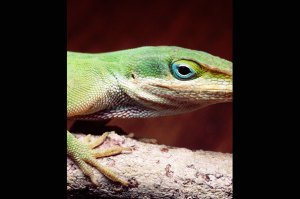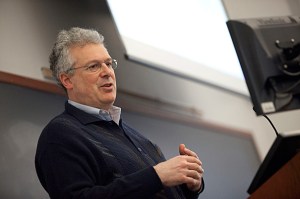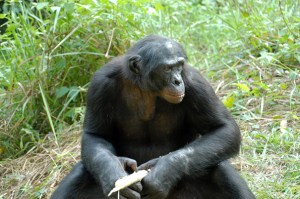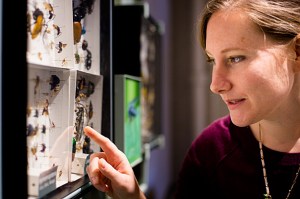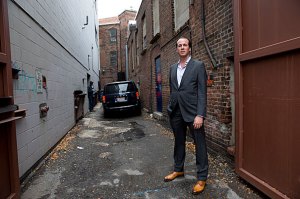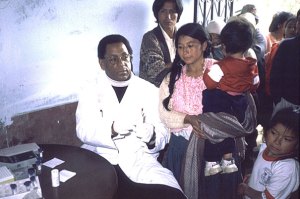Tag: Peter Reuell
-
Campus & Community
Fryer wins Clark Medal
Roland Fryer, Harvard’s Henry Lee Professor of Economics, has been awarded the American Economic Association’s John Bates Clark Medal, which is given annually to a rising young economist.
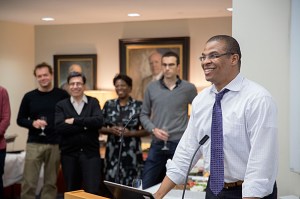
-
Health
Why birds don’t crash
A new study shows that birds use two highly stereotyped postures to avoid obstacles in flight. The study could open the door to new ways to program drones and other unmanned aerial vehicles to avoid similar obstacles.
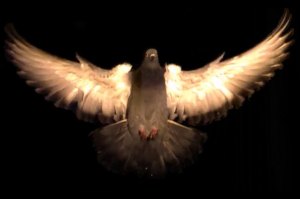
-
Science & Tech
A leap for ‘artificial leaf’
Using an electro-chemical process to etch materials, Harvard scientists have developed a system of patterning that works in just minutes, as opposed to the weeks needed for other techniques. Researchers can build photonic structures that control the light hitting the device and greatly increase its efficiency.
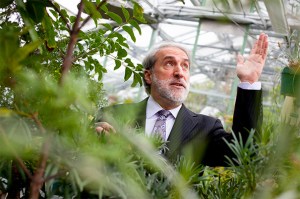
-
Science & Tech
When flames attack
Harvard researchers were able to predict when test flames in the lab were likely to switch from slow- to fast-moving fires, which could open the way to making similar predictions for forest fires.

-
Health
Mystery motor
Harvard researchers have solved the mystery of how some bacteria move across surfaces with the discovery of a rotary motor in the bacterium Flavobacterium johnsoniae.
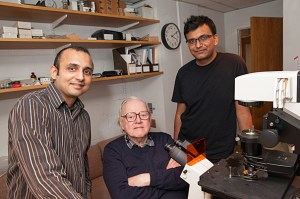
-
Health
Hip correction
A new study finds no connection between hip width and efficient locomotion, and suggests that scientists have long approached the problem in the wrong way.

-
Science & Tech
Understanding common knowledge
A new study examines how different kinds of shared beliefs can affect how people cooperate, and how people use common knowledge, a type of shared understanding, to coordinate their actions.
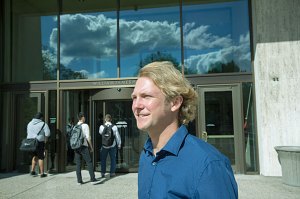
-
Campus & Community
A distinctive honor
Sixty-three Faculty of Arts and Sciences (FAS) employees from 36 departments — representing 2.5 percent of the FAS staff — were recognized at the sixth annual awards ceremony and reception, held in the faculty room of University Hall.
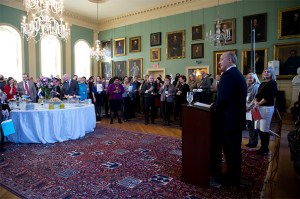
-
Health
The teeth tell a tale
A new study shows that the teeth of early hominins grew unlike those of either modern humans or apes, suggesting that neither can serve as a useful proxy for estimating the age or developmental progression of juvenile fossils.
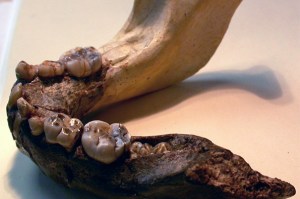
-
Campus & Community
Crowd of Fulbrights
For the second year in a row, Harvard is the leading producer of Fulbright Scholars, with 34 students ― 22 from the College, 12 in total from the Graduate School of Arts and Sciences, Harvard Law School, Graduate School of Design, and Graduate School of Education — receiving the prestigious grants.
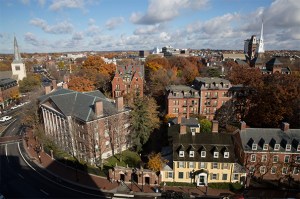
-
Health
March mammal madness
An assistant professor of evolutionary biology, Katie Hinde is also the creator of Mammal March Madness, a tournament that emulates the college basketball playoffs and pits species against each other in simulated combat.
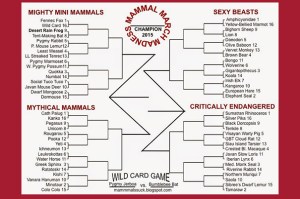
-
Health
A new understanding of Alzheimer’s
Using the principle of natural selection, researchers have outlined a new model of the disease suggesting that mitochondria — power plants for cells — might be at its center.
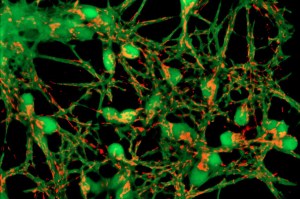
-
Science & Tech
Playing the ‘envelope game’
Harvard researchers have developed a first-of-its-kind model, dubbed the “envelope game,” that can help researchers to understand not only why humans evolved to be cooperative but why people evolved to cooperate in a principled way.
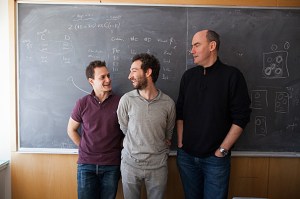
-
Health
Unlocking fat
A study by Emily Groopman ’14 shows that cooking helps to unlock the calories in fatty foods.

-
Health
Walk like a man
The fossilized hipbone of an ape called Sivapithecus is raising a host of new questions about whether the upright body plan of apes may have evolved multiple times.
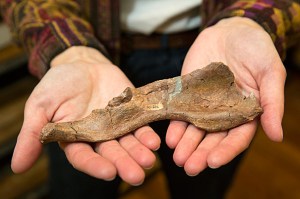
-
Campus & Community
Exploration, transformation
The fifth annual Harvard College Wintersession featured a host of events, from print-making on clay tablets to yoga classes to programming featuring prominent alumni.
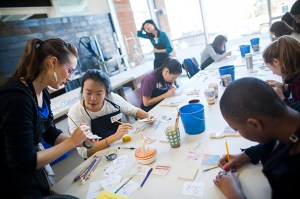
-
Campus & Community
Beyond the lab and library
For the past seven years, January has been a time when students in Harvard’s Graduate School of Arts and Sciences can delve into topics they might not otherwise have the chance to explore — everything from the mating habits of insects to writing grant proposals to various imaging techniques.
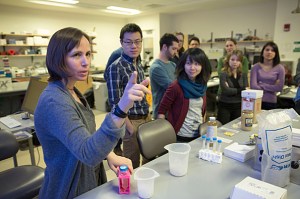
-
Science & Tech
Sea level correction
A new study shows that sea levels have increased over the last two decades at a greater rate than previously understood.

-
Health
Sounding out speech
A new study demonstrates that infants as young as 6 months can solve the invariance problem in speech perception.
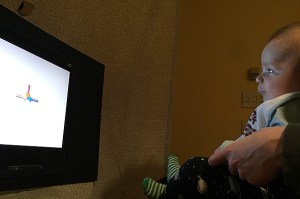
-
Health
The divergent skull
New work by Harvard scientists challenges long-standing ideas on skull development in vertebrates.
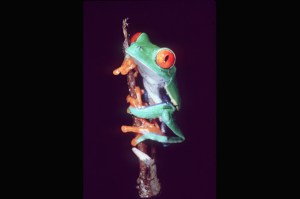
-
Campus & Community
Oxford and beyond
Rhodes Scholars Ruth Fong and Benjamin Sprung-Keyser both are driven by a desire to improve the world around them.
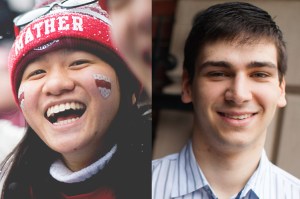
-
Health
How mosquitoes home in
A team of researchers has identified a key genetic variation that helps mosquitoes “smell” humans. The study could open the door to new strategies to ward off the pests.
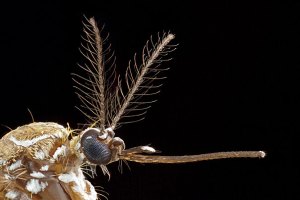
-
Campus & Community
A lifetime of scholarship, recognized
Steven Shapin, the Franklin L. Ford Research Professor in the History of Science, whose scholarship has had a wide-reaching impact on both the history and sociology of science, has been awarded the 2014 Sarton Medal for Lifetime Scholarly Achievement by the History of Science Society.
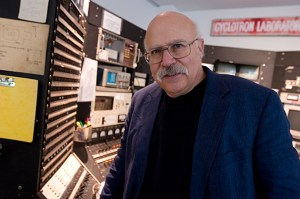
-
Campus & Community
Funding the next generation of scholars
Twenty undergraduates from around the world will have the chance to get hands-on experience in Harvard labs this summer, thanks to a four-year renewable grant to expand the Amgen Scholars Program to the University.
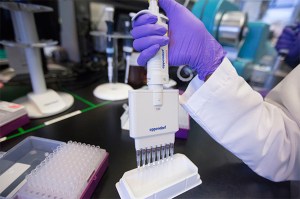
-
Health
Rapid-fire evolution
Faced with stiff competition from an invading species, a Harvard study has found that green anoles evolved larger toe pads equipped with more sticky scales to allow for better climbing in just 20 generations over 15 years.
